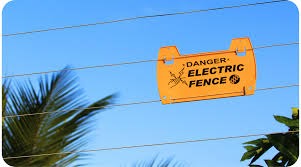WHY DO I NEED AN ELECTRICAL COC?
You need an electrical certificate, specifically an Electrical Certificate of Compliance (CoC) in South Africa, primarily for safety assurance, legal compliance, and insurance coverage. It is a crucial document that confirms the electrical installations in a property are safe and meet national standards.
- Safety Assurance: The primary purpose of a CoC is to ensure the safety of occupants and the property. A qualified, registered electrician inspects the installation to check for potential hazards such as faulty wiring, inadequate earthing, or defective components that could cause electric shocks or fires.
- Legal Requirement: Under the Occupational Health and Safety Act, it is a legal requirement for the user or lessor of an electrical installation to have a valid CoC.
- Property Transactions: A valid CoC is mandatory when selling or renting out a property. Transfer attorneys and rental agents require a copy before a property transfer or lease agreement can be finalised, to safeguard both the seller/landlord and the buyer/tenant from liabilities related to the electrical system.
- Insurance Coverage: Most insurance companies require a valid CoC as a condition of coverage. Without one, your insurance claim for any electrical damage, such as an electrical fire, may be rejected, leaving you financially responsible for all repairs and damages.
- Proof of Competent Work: The certificate can only be issued by a qualified electrician who is registered with the Electrical Contracting Board of South Africa (ECB) and the Department of Labour. This provides assurance that any electrical work has been performed by a competent professional and meets the South African National Standards (SANS 10142-1).
An LP Gas certificate (Certificate of Compliance, or CoC) is necessary for three primary reasons: safety assurance, legal compliance with South African law, and to ensure your insurance coverage remains valid.
- It is completely leak-free.
- Only SABS-approved, correct equipment (pipes, valves, regulators, hoses) is used.
- Proper safety distances from electrical points, windows, drains, and boundary walls are maintained for cylinder placement.
- Adequate ventilation is in place to prevent gas buildup.
- All rubber components are in good condition and replaced every five years.
- After any new installation, alteration, or modification to the system.
- When selling a property with a gas installation; a copy must be provided to the new owner. A CoC no older than 3 months is often required for property transfers.
- For ongoing compliance, it is recommended to have the installation inspected every five years, or more frequently if your insurer requires it.
- No Alterations: The original CoC remains valid indefinitely as long as the electrical installation has not been modified, repaired, or altered in any way since the certificate was issued.
- Property Transfer: When selling a property, a CoC older than two years cannot be used for the transfer of ownership. The seller must obtain a new, valid CoC.
- Alterations/Additions: If any electrical work (beyond minor maintenance like changing a light bulb) is done, a supplementary CoC must be issued for that specific work. The new supplementary CoC must be kept with the original document.
- Insurance: Many home insurance companies may refuse to pay out claims for electrical damage if a valid and current CoC cannot be produced.
- Landlords/Tenants: A property cannot be rented out without the landlord having a valid CoC, and tenants have the right to request a copy of this certificate.
How long is an LP Gas CoC valid for ?
An LP Gas CoC does not expire unless modifications, alterations, repairs, or maintenance have been done on the existing gas system since the original CoC was issued. If any work has been done post the original CoC, a new CoC is issued for the work completed and the original CoC will still be in place for the balance of the installation.
On change of ownership, is the CoC issued under the current owner or the new owner?
In the case of Domestic and Commercial installations, a CoC is needed for the sale of property, for a change of ownership (i.e. house, flat, restaurant, etc.).
A new CoC is issued and provided to the seller, which replaces the previous CoC. The Gas Practitioner issuing the CoC must check the entire gas system to ensure it complies and is safe to operate before issuing a CoC.




